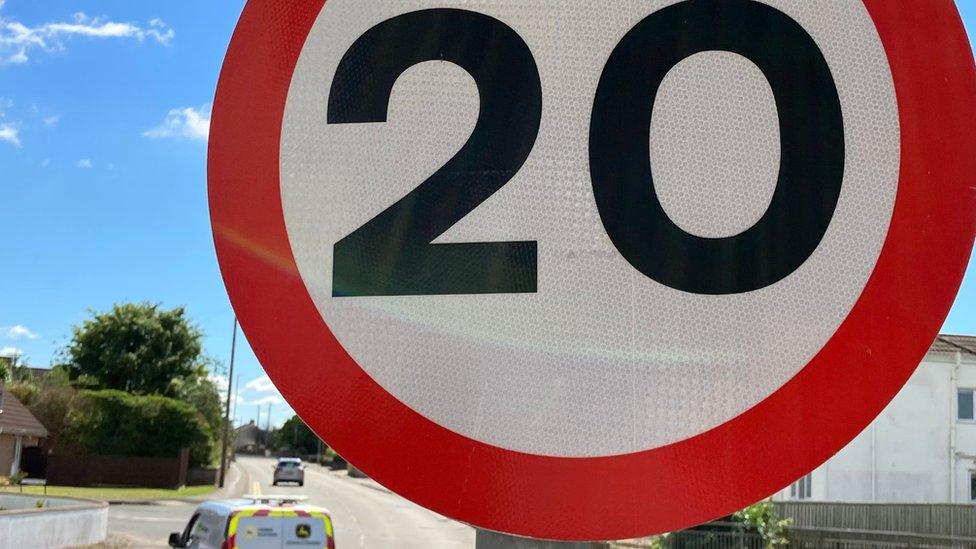Man behind Wales' 20mph limit admits mistakes
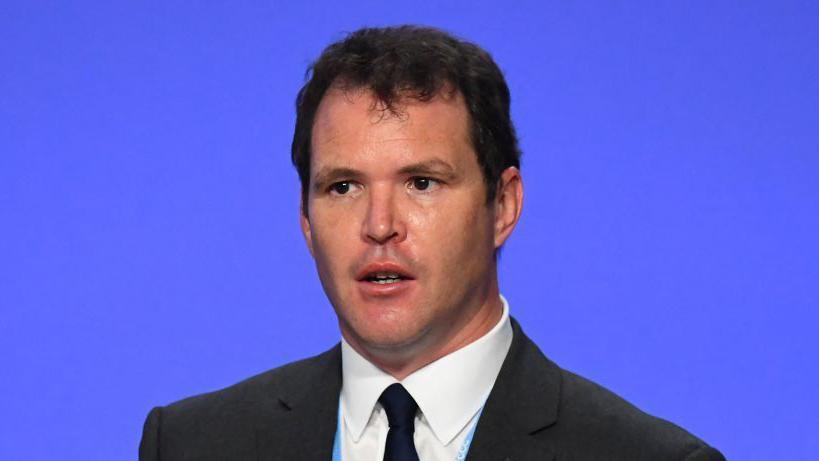
Lee Water quit as the transport minister in March
- Published
"More common sense" should have been used when implementing Wales' default 20mph speed limit, the man behind the controversial policy has said.
Lee Waters, who resigned as transport minister in March, said it was “quite clear” that the policy had reduced speeds and saved lives.
But asked what he would do differently, he said he would “apply more common sense on some roads where 20mph doesn’t pass the sniff test”.
The Welsh government said it recognised some roads should revert to 30mph and "that will happen as a result of our review".
Drivers demand 1,500 roads have 20mph limits axed
- Published14 September 2024
Serious road casualties drop in Wales since 20mph
- Published1 August 2024
Changes to 20mph speed limit policy promised
- Published18 April 2024
The policy - introduced last September - made 20mph, rather than 30mph, the default speed limit in built up areas, with local councils able to make exceptions.
It has led to a significant public backlash, with a review of its guidelines under way after a petition against the policy gathered just under half a million signatures and road signs were defaced.
But recent figures suggested injuries on 20mph and 30mph roads fell by a third in the final quarter of last year.
First Minister Eluned Morgan recently admitted the implementation of Wales' controversial 20mph law created problems.
Waters said he believed the "whole government didn't get behind it" in the way they did with other policies, citing reforms on organ donation as an example.
"If you think how much advertising and talking about that in advance, there wasn't half as much around the 20mph which was a bigger change to everyday people's lives," he told the BBC.
"So I think that's a mistake and I think everyone, including me, has to hold their hand up to that," he added.
Waters also said that some councils were "reluctant to move beyond the absolute letter of the guidance when they had flexibility".
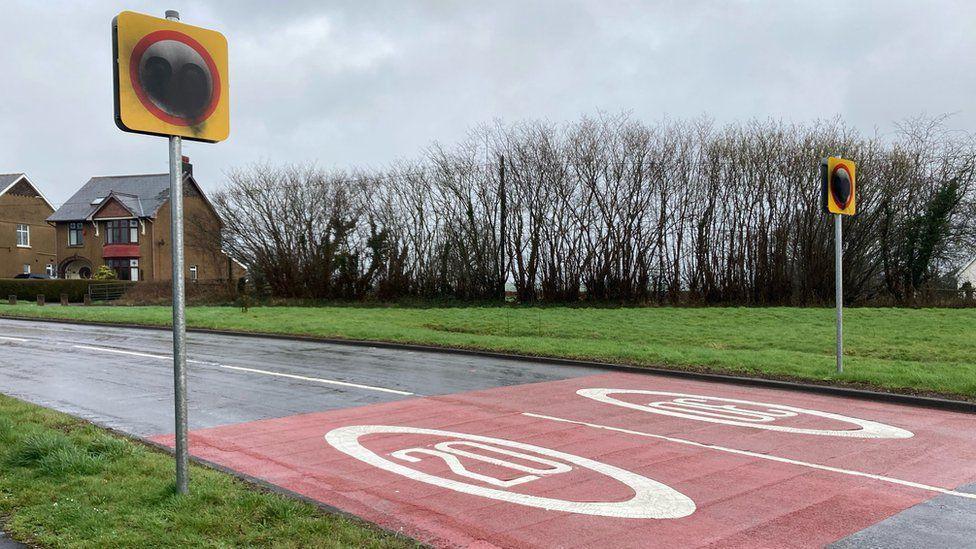
Road signs were defaced as the policy was coming into place
Waters also spoke of opposition to the policy, acknowledging it had been "greater and lasted longer than what we anticipated".
"I don't think we prepared the ground enough and don't think people anticipated on what a big change this will be," he said, adding it could "take time" for people to accept the policy.
“It took a long time for people to get used to seatbelts, took a long time for people to get used to [a ban on] smoking in public places - but we haven’t gone backwards on any of those policies, and I don’t think we’ll go backwards on this.”
Waters also said the government should have done "far more to make people realise how big of a change this was and how it would apply in their communities".
He added he was confident “the data and evidence shows that it will save lives, and in time it will settle down”.
The Welsh government said collisions on local roads had "reduced significantly."
“We will continue to monitor the long term trend but things are heading in the right direction."
It added it recognised some roads should revert back to 30mph and "that will happen as a result of our review".
On Sunday, the first minister thanked the public for engaging with councils and highlighting, for example, that through roads with 20mph limits had been causing "most frustration".
"But let's not forget that central to this is safety and... the number of collisions has seen a significant reduction," she told BBC Radio Wales' Sunday Supplement.
Morgan said it was now for councils to "respond to those local concerns" and take action.
Welsh Conservative transport spokeswoman Natasha Asghar said: "Labour politicians have now admitted on countless occasions after listening exercises that their 20mph policy is unpopular, but refuse to end it.
"The only common sense approach would be to follow what the Welsh Conservatives have said since day one - scrap the £33m scheme altogether and get Wales moving again."
Related topics
- Published6 September 2024
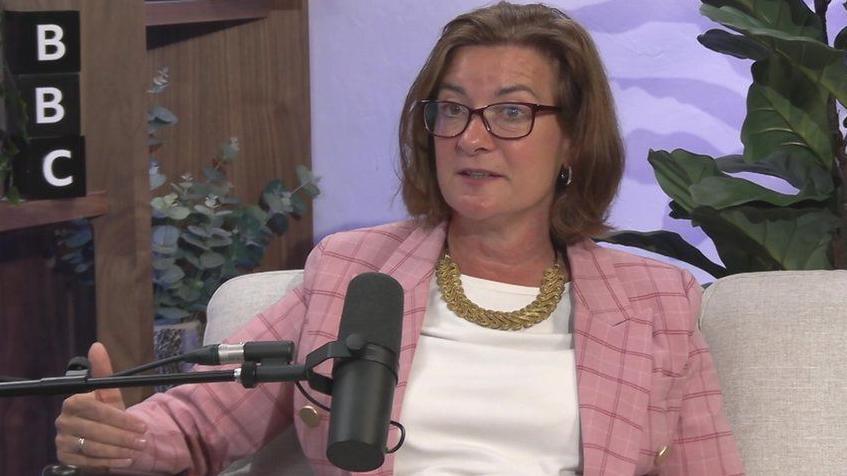
- Published1 August 2024
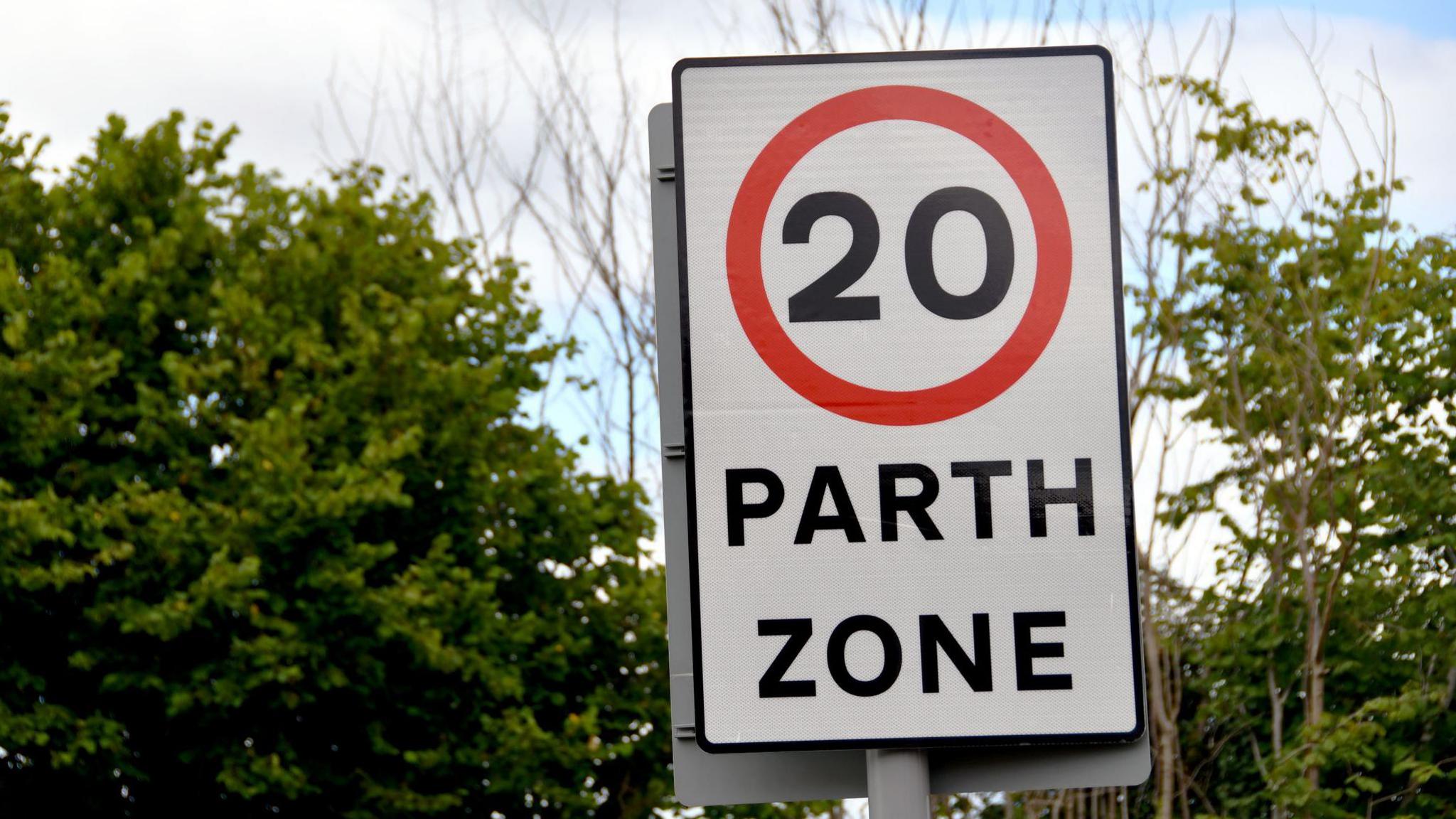
- Published23 April 2024
